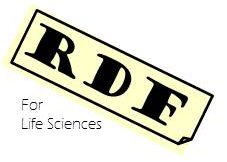バージョン 43 から バージョン 44 における更新: survey
- 更新日時:
- 2012/07/12 15:37:39 (14 年 前)
凡例:
- 変更なし
- 追加
- 削除
- 変更
-
survey
v43 v44 17 17 === Overview === #overview 18 18 19 We present an evaluation of native triple stores on biological data. Compared with the data in other areas biological data is typically huge. Therefore the performance of bulk loading and querying are essential to decide whether a triple store can be applied into the biological field. Our target is to verify whether the current triple stores are efficient to deal with the tremendous biological data. We test five native triple stores Virtuoso, OwlimSE, Mulgara, 4store, and Bigdata. We select five real biological data set instead of synthetic ones , whichranging from tens of millions to eight billions. We present their load times and query cost. We do not test the inference ability this time.19 We present an evaluation of native triple stores on biological data. Compared with the data in other areas biological data is typically huge. Therefore the performance of bulk loading and querying are essential to decide whether a triple store can be applied into the biological field. Our target is to verify whether the current triple stores are efficient to deal with the tremendous biological data. We test five native triple stores Virtuoso, OwlimSE, Mulgara, 4store, and Bigdata. We select five real biological data set instead of synthetic ones ranging from tens of millions to eight billions. We present their load times and query cost. We do not test the inference ability this time. 20 20 21 21 For each database we provide several results by adjusting their parameters, which could influence the performance importantly. However These parameters could perform differently with different hardware and software platforms, and even with different data set. It is difficult to test all the cases by adjusting and combining all the parameters for every data set because the importing of our data set, such as uniprot and DDBJ, may take over two days or several weeks. Therefore we do not guarantee what we provide is the best performance of each database although we try to find out the best performance for each triple store. … … 88 88 === Approach === #approach 89 89 90 We evaluated the data in every Sparql end point at least twice to make it sure that there is no much difference between two test values:|2nd-1st|/max(2nd,1st)<0.1(we took the first value in the summary part now because some loading is still in test ).90 We imported the data in every Sparql end point at least twice to make it sure that there is no much difference between two test values:|2nd-1st|/max(2nd,1st)<0.1(we took the first value in the summary part now because some loading is still in test ). 91 91 92 92 We did the query evaluation by executing the whole query mix (composed of the query sequence) five times in every Sparql endpoint, remove the highest one and then get the average time cost of other four queries. We report the five detailed time cost in every database section and the average cost in the summary section.
